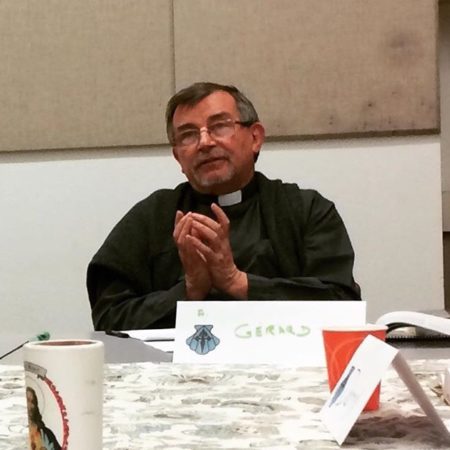For many reasons, it’s hard to eat just the right amount. Millions of people do not get enough food to satisfy their hunger or provide enough nutrition to adequately sustain their health. On the other hand, many who have plenty find it difficult to get up from the table until they have overeaten. They then devote time, money, and energy to lose the weight they’ve gained. Saint Paul has known both abundance and want and has “learned the secret of being well fed and of going hungry” (Philippians 4:12). He looks to the Lord to strengthen him. God, he says, fully supplies what we need. It is through the grace of God that the people he encounters—such as the Philippians—share with him from their plenty. Just as there is enough food at the Eucharist to satisfy all who come and enough food at the heavenly banquet to satisfy all who are welcomed there, there is enough food on this planet to satisfy every human life. It is just a matter, as Paul would put it, of sharing with those in distress.
The king in the Gospel is persistent in his generosity and hospitality, even after tragedy befalls his servants. As the king has done, so must we do. Through our generosity, God’s generosity is effected. It is a foretaste of the heavenly banquet. In baptism, we were invited to the feast. But we were also invited to build the kingdom of God. We are called to be generous and welcoming as well, as we are God’s emissaries now, inviting all to the feast.
However, the king has sharp words for those who are not dressed for the event. When we were invited to the feast, in baptism, we were called to “put on” Christ, to clothe ourselves in him. If we do so, becoming the face of Christ for others, we are appropriately dressed for the heavenly banquet. We put on Christ when we sacrifice our own desires for the needs of others.
Fr. Gerard Lecomte, CJM
Pastoral Patterns Summer 2020

